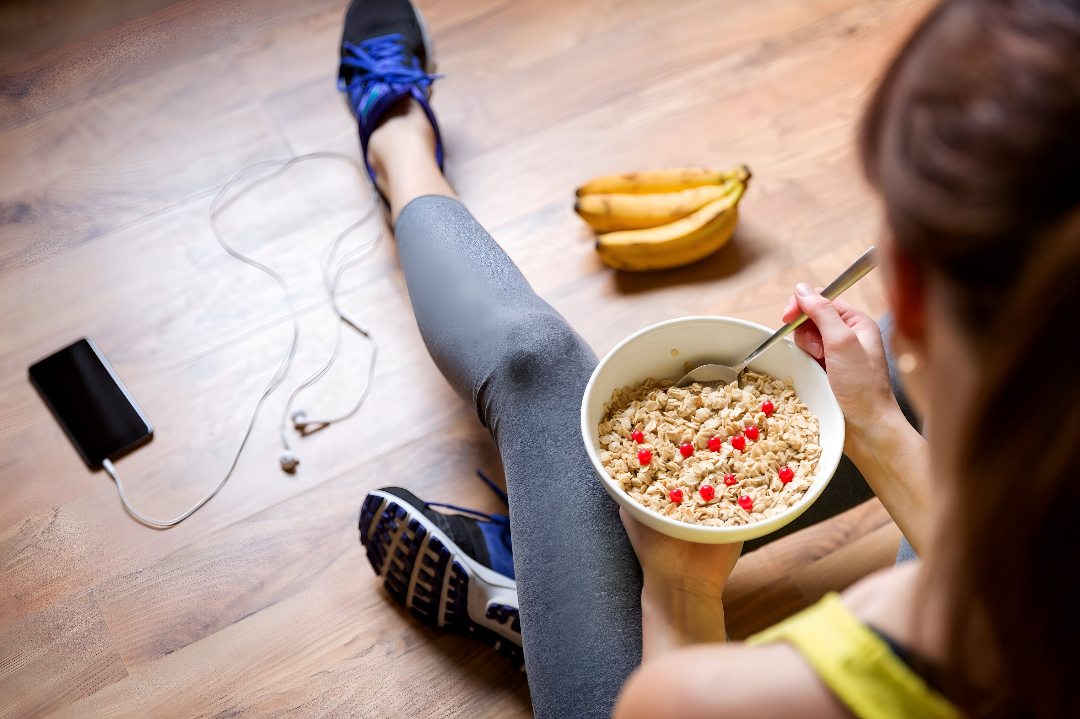Healthy Weight Loss: Tips Backed by Science That Work
Introduction: Why "Healthy" Matters More Than "Fast"
When it comes to shedding pounds, the internet is full of flashy headlines promising quick fixes, miracle diets, and instant results. But ask anyone who has achieved lasting success—and they’ll tell you the truth: healthy weight loss isn’t about speed. It’s about sustainability.
Healthy weight loss is rooted in practices that nourish your body, support your mind, and build long-term habits. It's not about depriving yourself or overexercising until you burn out. It's about evidence based weight loss strategies that prioritize overall well-being.
In this blog post, we’re not giving you a cookie-cutter plan. Instead, you’ll learn real, science backed weight loss tips that help you lose weight safely, sustainably, and successfully. Let’s explore ten powerful sections that will equip you with everything you need to create a healthier version of yourself—step by step.
1. Busting the Myth of Rapid Weight Loss
Everywhere you look, someone is pushing a “30-day shred” or a “7-day detox” that promises unbelievable results. Unfortunately, most of these programs are unsustainable and can even be harmful. The truth is, science shows that losing 1 to 2 pounds per week is not only realistic but also healthier for your body in the long run.
Why does slow and steady work better? Because it helps preserve lean muscle mass, improves metabolic function, and encourages healthier behavior change. Crash dieting, on the other hand, often leads to nutrient deficiencies, muscle loss, and weight regain.
If you want sustainable weight loss, the key is to aim for progress, not perfection. Gradual, consistent changes rooted in evidence based weight loss principles give your body time to adapt. And when your body adapts, real transformation begins.
2. Understanding Your Body's Energy Equation
At the heart of any healthy weight loss journey is understanding the balance between calories in and calories out. While this may sound basic, many people underestimate just how impactful small daily choices can be on their energy balance.
Science backed weight loss research confirms that weight loss occurs when you consistently consume fewer calories than you burn. However, this doesn’t mean you have to starve yourself. In fact, drastic calorie restriction can backfire by slowing your metabolism and triggering binge eating.
The key is creating a modest calorie deficit—about 300–500 calories per day—through smarter food choices and increased physical activity. This small shift, sustained over weeks and months, leads to steady, healthy results without compromising your energy or well-being.
3. Prioritize Whole Foods Over Processed Calories
Not all calories are created equal. That’s one of the most powerful lessons in science backed weight loss. A 100-calorie apple nourishes your body with fiber, vitamins, and hydration, while a 100-calorie candy bar offers a sugar spike and little else.
Whole foods—like fruits, vegetables, lean proteins, whole grains, and healthy fats—are naturally more satisfying and nutrient-dense. These foods keep your body full, regulate blood sugar, and reduce cravings. Conversely, ultra-processed foods tend to be high in added sugars, trans fats, and preservatives, leading to inflammation and weight gain.
To achieve healthy weight loss, focus on upgrading your diet rather than shrinking it. Add more color to your plate. Swap white rice for quinoa. Choose grilled over fried. These simple upgrades make a big difference when practiced consisten
4. Move More, But Move Smart
You don’t have to spend hours in the gym to see results—but you do have to move. Regular physical activity is one of the most consistent predictors of sustainable weight loss and long-term weight maintenance.
That said, more isn’t always better. Instead of overtraining or chasing fads, focus on creating an exercise routine that fits your lifestyle. Science supports a combination of cardio (like walking, biking, or swimming), strength training, and flexibility work (such as yoga or stretching) for well-rounded fitness.
Aim for at least 150 minutes of moderate activity per week, plus two strength-training sessions. Even walking 30 minutes a day can significantly improve your weight loss and boost your mood. Choose activities you enjoy—it makes staying consistent much easier.
5. The Hidden Power of Sleep in Weight Loss
It’s easy to overlook sleep, but it might be the missing link in your healthy weight loss journey. Research shows that sleep deprivation alters hunger hormones, increases cravings (especially for high-calorie foods), and slows metabolism.
When you sleep less, you produce more ghrelin (the hunger hormone) and less leptin (the satiety hormone). This hormonal imbalance makes it much harder to make smart food choices and control portions. In fact, sleep-deprived individuals are more likely to snack late at night and skip workouts the next day.
Prioritize 7 to 9 hours of quality sleep each night. Create a relaxing bedtime routine, limit screen time before bed, and stick to a consistent schedule—even on weekends. Rest is not a luxury—it’s a weight loss tool backed by science.
6. Why Hydration Is More Than Just Drinking Water
Hydration plays a critical role in your metabolism, digestion, and energy levels. But water does more than quench your thirst—it can actually help you lose weight.
Studies have shown that drinking water before meals reduces appetite and calorie intake. Plus, staying hydrated helps your body burn fat more efficiently. Sometimes, what we perceive as hunger is actually dehydration in disguise.
To stay on track with healthy weight loss, aim to drink at least 8 glasses of water a day—or more if you're active or live in a hot climate. Add fresh lemon, cucumber, or mint to make water more enjoyable. And don’t forget that fruits and veggies also contribute to your hydration goals.
7. Stress and Its Silent Sabotage of Weight Loss
Chronic stress is one of the most underrated obstacles to sustainable weight loss. When you’re stressed, your body releases cortisol—a hormone that promotes fat storage, especially around the belly. High cortisol levels also trigger emotional eating and cravings for sugary, high-fat foods.
Science backed weight loss plans recognize that managing stress is just as important as managing calories. Whether it's through meditation, deep breathing, journaling, or spending time in nature, creating space for mental rest is essential for long-term health.
Give yourself grace on tough days. Emotional regulation and resilience are part of the journey. Your mental well-being shapes your physical outcomes more than most people realize.
8. Mindful Eating: Reconnecting with Your Hunger Cues
In our fast-paced world, it’s easy to eat on autopilot—while watching TV, scrolling through your phone, or rushing out the door. But mindless eating can sabotage even the most well-intentioned weight loss tips.
Mindful eating is the practice of paying full attention to your food: how it looks, smells, tastes, and makes you feel. This practice helps you slow down, recognize fullness cues, and enjoy meals more. It’s also been shown to reduce binge eating and emotional snacking.
Instead of eating until you’re stuffed, try eating until you’re satisfied. Pause halfway through your meal. Chew more slowly. Tune in to your body. These small, evidence based weight loss habits cultivate lasting change.
9.Tracking Progress the Right Way
If the only metric you’re using to track weight loss is the number on the scale, you're missing the full picture. Body weight can fluctuate daily due to water retention, hormones, and other variables. Focusing solely on pounds can be discouraging and misleading.
Instead, use a mix of tracking tools: how your clothes fit, progress photos, energy levels, sleep quality, and strength gains. These indicators offer a more complete view of your transformation.
Some find success by tracking meals, workouts, or even moods in a journal or app. This not only builds accountability but also helps identify patterns that work for you. Sustainable weight loss is about noticing what’s improving, not just what’s changing numerically.
10. Building Habits That Last a Lifetime
Ultimately, the goal isn’t just to lose weight—it’s to keep it off in a way that enhances your life. That’s where habit building comes into play. Real transformation happens when your healthy choices become automatic.
Start small. Choose one or two habits to master before adding more. Whether it’s prepping meals, taking daily walks, or reducing sugary drinks, consistency beats intensity every time.
Science shows that behaviors practiced for 60–90 days are more likely to stick long-term. So be patient with yourself. Celebrate milestones, no matter how small. Healthy weight loss is a marathon, not a sprint. And with every step, you're becoming the healthiest version of yourself.
Conclusion: You Don’t Need Perfection—Just Progress
There’s no single blueprint for healthy weight loss, but the principles are clear: fuel your body, move it often, rest well, and treat yourself with compassion.
Science backed weight loss doesn’t ask you to be perfect—it asks you to be consistent. Sustainable weight loss is about finding what works for your life, your body, and your goals.
If you follow these evidence based weight loss tips, you’ll not only lose weight—you’ll gain strength, energy, confidence, and peace of mind. That’s the real win.
"Tired of conflicting weight loss advice that leads to frustration instead of results? You’re not alone. Forget the fads and gimmicks—real, lasting change starts with science. In this post, we break down proven, evidence-based strategies that support healthy weight loss without starving, stressing, or sacrificing your sanity. Ready to lose weight the right way—and keep it off for good? Let’s dive in"



